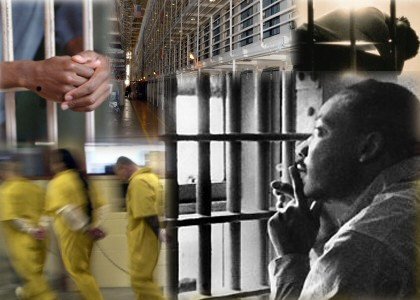
Dr. Martin Luther King, Jr. would have organized mass rallies in support of human rights for prisoners across U.S.
by Black Agenda Report (BAR) managing editor Bruce A. Dixon, with assistance from Ingemar Smith
Wed. Dec. 22, 2010
Last Friday members of the Concerned Coalition to Protect Prisoner Rights met with Georgia correctional officials. The following Monday they commenced the first of a series of fact finding visits to the state’s correctional institutions, seeking the reasons and right response to the stand of inmates demanding their human rights. Dr. King’s annual holiday is coming up too. What would he say about the prisoners and the nation’s misguided public policy of mass incarceration? What would he do, and what should we?
WHAT WOULD DR. KING SAY OR DO?
“‘The prisoners have done all they can do now. It’s up to us to build a movement out here that can make the changes which have to be made.’”
Eight days after the start of Georgia’s historic prisoner’s strike, in which thousands of inmates in at least six prisons refused to leave their cells, demanding wages for work, education and self-improvement programs, medical care, better access to their families and more, representatives of the communities the inmates came from met in downtown Atlanta with state corrections officials. The community delegation, calling itself the Concerned Coalition to Protect Prisoners Rights, was headed by Ed Dubose of the NAACP [3] of Georgia’s state conference, and included representatives from the US Human Rights Organization [4], the Nation of Islam [5], the Green Party of Georgia [6], The Ordinary Peoples Society [7], and attorneys from the ACLU of Georgia, [8] the Texas Criminal Justice Coalition [9] and elsewhere, along with state representative Roberta Abdul-Salaam [10].
State officials claimed they knew about the strike action well in advance, and said they locked the institutions down as a preemptive measure. They declared they’d confiscated more than a hundred cell phones, mostly in public places, and identified dozens of inmates whom they believed were leaders of the strike. They admitted confining these inmates to isolation and in some cases transferring them to other institutions.
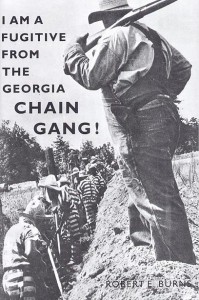
Conditions in GA prisons today do not differ much from those depicted in this classic movie; prisoners are still victims of unpaid slave labor but have to pay for phone calls and commissary items
The coalition asserted that brutal reprisals were being taken against nonviolent strikers by prison authorities, and that constant threats being made against inmates. These incidents, the coalition insisted, along with the vast gulf between the reasonable demands of the inmates and some of the well-known conditions in the state’s penal institutions made the immediate entry into the affected prisons by a fact finding team of advocates, community representatives and attorneys at the earliest moment an absolute necessity. The meeting adjourned awaiting the state’s decision. And late Friday afternoon, state corrections officials agreed to access by a small number of delegated observers, who would visit Macon State Prison, some two hours south of Atlanta the following Monday.
The observers who visited Macon State on December 20 would not comment on what they saw and heard, except to confirm that they did interview staff and prisoners for about five hours. Macon State, some said, was the institution chosen by the Department of Corrections. Subsequent visits would have to be made to other institutions, they confirmed, including some of those where the alleged strike leaders were being held.
“We understand where we are and how we got here,” explained Rev. Kenny Glasgow of The Ordinary Peoples Society (TOPS) after his visit to Macon State. A former prisoner himself who spent fourteen years behind the walls, Glasgow runs a series of re-entry programs for former inmates in Georgia and Alabama. “We only got to sit down with correctional officials, we only gained access to the prisons because of the courageous stand of those behind the walls. It was their willingness to work together across different lines and to sacrifice the very limited freedom and safety they have that got us to this point. The prisoners have done all they can do now. It’s up to us to build a movement out here that can make the changes which have to be made.”
The Concerned Coalition to Protect Prisoners Rights is expected to request to visit at least one more Georgia penal institution before the year ends to continue its fact finding process. Coalition spokespeople have been deluged with messages of solidarity and support from across the country and around the world. Meetings, marches and demonstrations have taken place in Oakland, Detroit, and New York and elsewhere [11]. The Center for Constitutional Rights and other outfits are circulating online petitions which have garnered thousands of signatures in support of the prisoners. Those wishing to contact the Coalition via email can do so at concernedcoalitiong@gmail.com.
“Any holiday celebration, any dinner, parade, or commemoration of Dr. King’s life and work that does not embrace the cause of Georgia’s and the nation’s prisoners… is an empty one…”
In about three weeks we’ll all be celebrating the January 15 anniversary of Dr. Martin Luther King’s birth. Many have remarked on the great distance between the actual life and work of Dr. King and the empty plaster saint of nonviolence that some have turned him into. The truth is that the living Martin Luther King was a fearless opponent of injustice, a man unafraid of endorsing unpopular causes, so long as these causes were just. If Dr. King were alive today he would wrap his arms around the cause of Georgia’s and this nation’s prisoners. Work without wages is indeed close to slavery. Even if the 13th Amendment permits “involuntary servitude” of those convicted of crimes Dr. King might rightly observe, that this was passed almost a century and a half ago, and that many things “legal” are neither moral nor advisable.
The U.S. has four and half percent of the world’s population and nearly twenty five percent of its prisoners. Georgia leads the nation with an astounding one in thirteen of its adult citizens in prisons and jails, or under court and correctional supervision, thanks to innovations like the privatization of misdemeanor probations. When advocating ever-longer sentences becomes a standard campaign tactic for ambitious politicians, when fortunes are made overcharging inmate families for phone calls and raking off ten percent and more of paltry funds families send their loved ones, when prisons become growth industries with their own lobbyists, punishment has become a crime.
Any holiday celebration, any dinner, parade, or commemoration of Dr. King’s life and work that does not embrace the cause of Georgia’s and the nation’s prisoners, that does not critically examine the facts America’s current policy of mass incarceration is an empty one, a hollow mockery of the man King was and the movement he stood for. More than twenty thousand in Atlanta march in observance of Dr. King’s life and work every year. The shiny new sanctuary of Ebeneezer Baptist Church is always filled with dignitaries on that day. Let’s see how many signs there are outside the church supporting the prisoners on King’s day in Atlanta and around the country. And let’s see if the dignitaries inside Ebeneezer can even bring themselves to mention the people behind the walls, the locked down and and the left out, who are truly Dr. King’s people. And ours.
Visit Georgia Governor Sonny Perdue’s office in Washington, DC today and on the door you’ll find the nine demands motivating thousands of Georgia prisoners who [were] on strike. Prisoners there have been refusing to do slave labor for the State since the strike began on December 9 [and for nine days afterwards]. Drop by the National Governor’s Association (NGA) downstairs and you’ll find a bewildered bunch who’d rather pretend they have nothing to do with Perdue and his peers than acknowledge what the prisoners have brought to the fore: so many years after emancipation many US Governors today are effective slave masters over their states’ incarcerated population.
“You’re in the wrong place to reach the governors,” Matt Malmo, Health and Human Services Director at the NGA told a group of DC locals who visited the office this morning in solidarity with the striking prisoners. Funny statement for an organization that calls itself, “The Collective Voice for the Nation’s Governors.” Malmo is not alone in his shamefully dismissive attitude towards the health and humanity of the prisoners. The Georgia Governor has yet to even acknowledge the strike and his Corrrections Department has outright denied that the strike is happening..
“We have a message for Sonny Perdue and all the governors. Slavery and injustice in the State of Georgia is an injustice to all of us,” explained one of the visitors as they presented the prisoner’s demands aloud and submitted a letter. Indeed, unpaid or penny-wage coerced labor programs exist in prisons across the country. Georgia pays most of its prison laborers nothing, while typical wages in other states range between 21 cents and $2 an hour. In recent memory an Illinois governor unilaterally declared a moratorium on the death penalty. We expect the same responsible use of gubernatorial authority to halt prison slavery and initiate just labor policies.
The Georgia Prisoners are demanding living wages for their work, an end to cruel and unusual punishment, decent health care and living conditions, nutritional meals, educational opportunities beyond the high school level, vocational and self-improvement opportunities, greater access to their families, and just parole decisions.
Protest and non-cooperation with prison labor is typically punished with restrictions on basic rights like library access, rest time, and visitation. In the case of this strike, and this is largest prison strike in US history, retaliation by the state has been much harsher. Strikers with smuggled cell phones have reported violent retaliation. Corrections officers have assaulted prisoners, destroyed their property, turned off heat and hot water, restricted food, isolated suspected leaders, and cut prisoners off from their families.
The Concerned Coalition to Respect Prisoners Rights, a formation representing the strikers from outside prison walls, is negotiating with the Department of Corrections to stop the repression of strikers and investigate current prison conditions. The Coalition includes family members of prisoners, like spokeswoman Elaine Brown, and groups like the NAACP and the Nation of Islam.
As building security mobilized to eject the visitors to the governors’ offices today, the halls rang with the words to a great Solomon Burke song, “None of us are free if one of us are chained”. The visitors left singing and in high spirits, having sent a clear message to Sonny Perdue and the NGA: the prisoners are not alone in their righteous demands and their cry for abolition will be heard. The deafening stone of prison walls, the silencing blows of repression, and the transparent propaganda of a Department of Corrections in crisis, cannot contain the strikers’ message of rebellion and self-liberation.
Solidarity actions are occurring across the country. Shine through the media blackout and join the movement for abolition.
Concerned Coalition to Respect Prisoners Rights on faceb00k
Black Agenda Report
Prison Legal News
In solidarity with the Georgia prison strike.
Contact: DCabolition@gmail.com

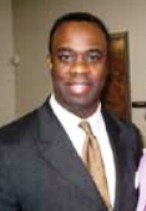
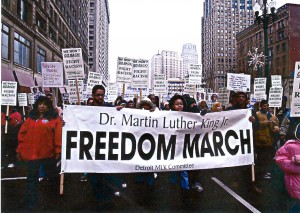
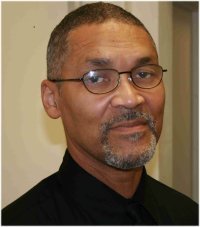
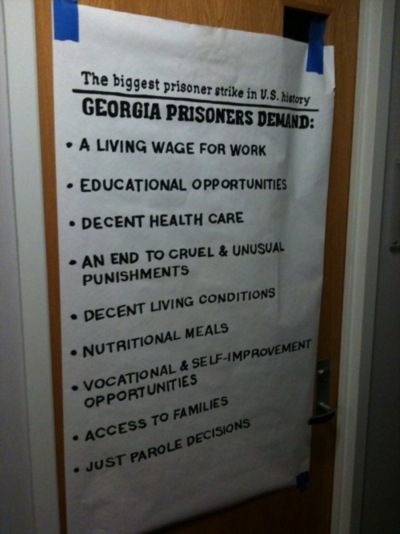
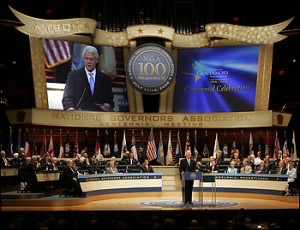




thanks for this information.http://www.magiccampusbrasil.net
The following links give data concerning Ruffin v. Commonwealth of Virginia, Georgia Prison History, and Georgia State Constitutional proviso for prison slavery, shared ownership of the convict, and a free digital copy of the 1982 book Prison Slavery.
p. 207 -208 Georgia State Constitution
http://books.google.com/books?id=zbTU7QxA7qoC&pg=PA227&lpg=PA227&dq=prison+slavery+book&source=bl&ots=uHJAE1R4D_&sig=hUcrhluJf1YoJQQvDc3BSlo46-w&hl=en&ei=vPofTcP9GImcnwePre34DA&sa=X&oi=book_result&ct=result&resnum=5&ved=0CDoQ6AEwBA#v=onepage&q=Georgia%20Constitution&f=false
128-134 Shared Ownership of the Convict is Attacked
http://books.google.com/books?id=zbTU7QxA7qoC&pg=PA227&lpg=PA227&dq=prison+slavery+book&source=bl&ots=uHJAE1R4D_&sig=hUcrhluJf1YoJQQvDc3BSlo46-w&hl=en&ei=vPofTcP9GImcnwePre34DA&sa=X&oi=book_result&ct=result&resnum=5&ved=0CDoQ6AEwBA#v=onepage&q=Ruffin&f=false
Ruffin v.
http://books.google.com/books?id=zbTU7QxA7qoC&pg=PA227&lpg=PA227&dq=prison+slavery+book&source=bl&ots=uHJAE1R4D_&sig=hUcrhluJf1YoJQQvDc3BSlo46-w&hl=en&ei=vPofTcP9GImcnwePre34DA&sa=X&oi=book_result&ct=result&resnum=5&ved=0CDoQ6AEwBA#v=onepage&q=Ruffin%20v&f=false
Prison Slavery
http://books.google.com/books?id=zbTU7QxA7qoC&pg=PA227&lpg=PA227&dq=prison+slavery+book&source=bl&ots=uHJAE1R4D_&sig=hUcrhluJf1YoJQQvDc3BSlo46-w&hl=en&ei=vPofTcP9GImcnwePre34DA&sa=X&oi=book_result&ct=result&resnum=5&ved=0CDoQ6AEwBA#v=onepage&q=prison%20slavery%20book&f=false
In Solidarity and Towards Abolition